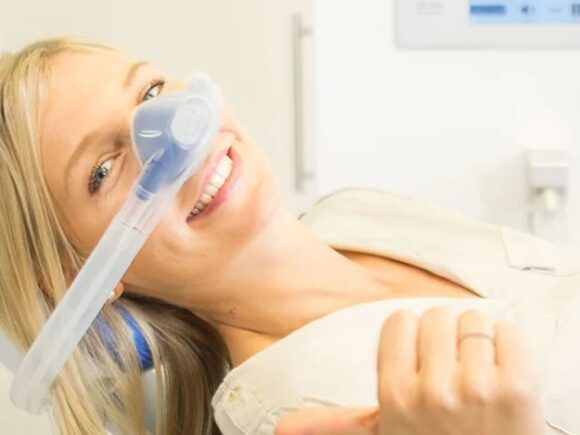



Wisdom Teeth Removal Melbourne
Affordable & Gentle Wisdom Teeth Removal by Dr Wessam Atteya who has 22 years experience and tens of thousands of wisdom teeth extractions under his belt.

About Melbourne Wisdom Teeth
Melbourne Wisdom Teeth is conveniently located in the heart of Melbourne and is easily accessible from all surrounding areas with great public transport access. Dr Wessam Atteya has obtained a dental degree and has invested time in continued education allowing him to stay up to date with the latest techniques and equipment to continue to deliver the very best dentistry for his patients.
From the moment you walk into our wisdom teeth dental practice you will be greeted by our lovely reception staff in our modern practice. We have invested in the very best equipment and we maintain the very highest level’s of hygiene to keep our patients happy and safe. The vibe in our wisdom teeth practice would be best described as modern, comfortable and relaxing. With over 100 5 star google reviews we are excited to help you.
Dr. Wessam Atteya and his team of dentists provide a cost effective wisdom teeth removal treatment. With over 20 years of experience in dentistry
Common Signs And Symptoms Of Wisdom Tooth Infection
Tenderness and jaw pain
Swelling of the gums around the teeth
Swelling of the lymph glands in the neck
Difficulty moving your jaw to open and close your mouth
Redness
Bad taste in mouth when eating foods.
Cysts, which are pockets of liquid, around the tooth.
Contact us
Costs for wisdom teeth removal will vary, depending on the complexity of each case; some cases will be straightforward and can be performed in general dentist clinics, while other complicated cases will be more complex and will require an oral surgeon referral.
The first step is to put a local anaesthetic around the tooth, or teeth, that are being removed. First this would be a substance placed on the gums, then followed by the injection of the local anaesthetic.
Most of the time, you will be awake during this procedure though there are circumstances where people are put completely under General Anaesthesia. This is between you and your oral surgeon.
If you get a sedative, this will either come in oral form or an IV drip in your arm.
If you get “put under general anaesthesia”, you will get a mask put over your face to breath in a gas to put you to sleep. While under, your breathing and other vitals are closely monitored.
During the procedure, the dentist/surgeon will cut open your gums and remove any teeth and other debris. They may remove any bone that is blocking the teeth that they are trying to remove. They might also decide to cut the tooth up for easier removal – It all depends on your individual case.
Often stitches are required, in which case the dentist/surgeon will seal up the incision. Otherwise, you will just get gauze to cover the wounds to promote clotting and control the bleeding.
Depending on the type of sedative used, you may or may not be able to drive yourself home after spending time in recovery. You will be aware of this before your procedure.
✓ Use ice or an ice pack as instructed by your surgeon. This can help reduce the swelling and bruising after the surgery, and this can also be extremely helpful to use to combat the pain.
✓ Your surgeon will often prescribe a pain medicine to help with pain management. You can also use an over-the-counter medicine like Ibuprofen or paracetamol to help. This is usually enough to help keep the pain minimal. If not, you can use ice against your cheek to help with the pain as well.
✓ After resting, you should be able to return to normal activity the next day. However, you should be warned to avoid anything to strenuous so you do not harm the stitches or the clotting that should be occurring. This can lengthen your recovery time.
✓ While your mouth is numb, be careful to not bite too hard to avoid injuring your tongue, cheeks or lip.
✓ Be sure to drink plenty of water after the surgery but avoid using a straw for at least a week because this can dislodge any clotting. Avoid alcoholic, sugary, or carbonated beverages until after 24 hours after the surgery. This includes any hot beverages.
✓ After the first day, expect some blood and oozing coming from the wound. Do not excessively spit, otherwise this can dislodge the clot. Replace gauze over the wound as you were instructed to by the surgeon.
✓ Use a saltwater rinse. You should continue this for a week, every 2 hours and after every meal. This will help keep the socket clean and free of food and debris that can cause irritation. To make this saltwater mix, use about ½ a teaspoon of salt and mix it in with about 8 ounces of warm water.
✓ You will want to stick to only soft food for the first 24 hours, like lukewarm soup or pudding. You can gradually move up to harder foods but take it slow. Avoid anything too hard, chewy, hot or spicy because these can be very painful and irritate the wound. They can also get stuck in the socket.
✓ Avoid smoking for the first 24 hours, but it’s advised to try and go a week without it. This also goes for if you chew tobacco. Using tobacco can reduce the recovery time and increase risk of complications.
✓ Do not brush your teeth, use mouth wash or anything else for the first 24 hours. After that, you can rinse your mouth with warm salt water. After 24 hours, you can start brushing your teeth again but be careful of your stitches if you have any.
✓ Keep your head propped up to prevent prolonged bleeding.
✓ Do not play with the wound with your tongue.